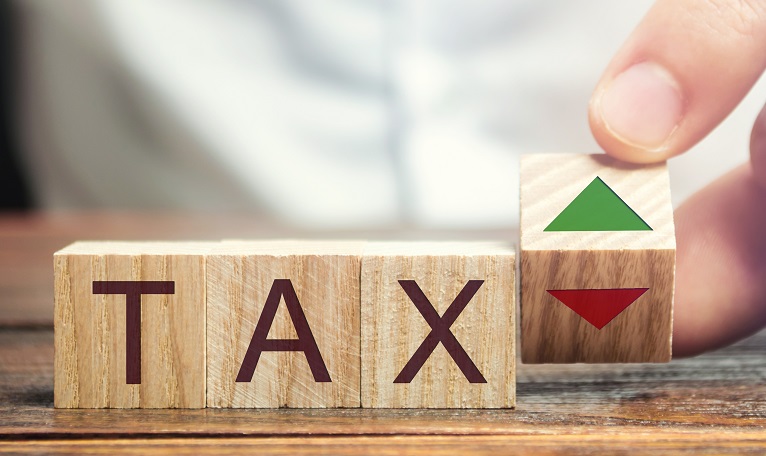
As one of the Approved Company Auditors and Chartered accountant firm, we provide taxation services for a wide range of industries for small and medium-size enterprises, multinational corporations and subsidiaries of overseas listed companies for their statutory and special tax needs.
Corporate Tax
A company is taxed on the income earned in the preceding financial year. In Singapore predominantly companies use the calendar year as their financial year.This means that income earned in the financial year 2018 will be taxed in 2019.
Corporate Tax Rate
With effect from YA 2010, a company is taxed at a flat rate of 17% on its chargeable income regardless of whether it is a local or foreign company
Taxable and Non-Taxable Income
All income earned in or derived from Singapore is chargeable to income tax. Generally, overseas income received in Singapore on or after 1 Jan 2004 is not taxable, except in some circumstances. Please refer to Overseas Income Received in Singapore for more details.
Income earned may come from different sources such as:
- Employment
- Trade, Business, Profession or Vocation
- Property or Investments
- Other Sources (e.g. annuities, royalties, winnings or estate or trust income)
Goods And Services Tax
Goods and Services Tax or GST is a broad-based consumption tax levied on the import of goods (collected by Singapore Customs), as well as nearly all supplies of goods and services in Singapore. In other countries, GST is known as the Value-Added Tax or VAT.
GST exemptions apply to the provision of most financial services, the sale and lease of residential properties, and the importation and local supply of investment precious metals. Goods that are exported and international services are zero-rated.
How GST Works?
Goods and Services Tax or GST is a broad-based consumption tax levied on the import of goods (collected by Singapore Customs), as well as nearly all supplies of goods and services in Singapore. In other countries, GST is known as the Value-Added Tax or VAT.
GST exemptions apply to the provision of most financial services, the sale and lease of residential properties, and the importation and local supply of investment precious metals. Goods that are exported and international services are zero-rated.
Charging and Collecting GST
Once you have registered for GST, you must charge GST on your supplies at the prevailing rate. This GST that is charged and collected is known as output tax. Output tax must be paid to IRAS.
The GST that you incur on business purchases and expenses (including import of goods) is known as input tax. If your business satisfies the conditions for claiming input tax, you can claim the input tax on your business purchases and expenses.
This input tax credit mechanism ensures that only the value added is taxed at each stage of a supply chain.
General GST Schemes
Discounted Sale Price Scheme
Under the Discounted Sale Price Scheme, you can charge GST on 50% of the selling price when you sell a second-hand / used vehicle. You do not need to seek prior approval from IRAS to use the scheme.
Gross Margin Scheme
Second-Hand dealers who purchased goods free of GST may use the Gross Margin Scheme to charge and account for GST.
Hand-Carried Exports Scheme (HCES)
Effective 1 April 2009, the Hand-Carried Exports Scheme (HCES) is applicable if you wish to zero-rate your supplies to overseas customers for goods hand-carried out of Singapore via Changi International Airport.
Import GST Deferment Scheme (IGDS)
Under IGDS, approved GST-registered businesses pay GST on imports payments when their monthly GST returns are due instead of at the point of importation.
Major Exporter Scheme (MES)
Under MES, GST on non-dutiable goods is suspended at the point of import and also when the goods are removed from Zero GST warehouses.
Tourist Refund Scheme (TRS) for Businesses
GST-registered businesses may operate TRS as an independent retailer or by engaging the services of a Central Refund Agency to provide GST refunds to tourists.
Zero GST (ZG) Warehouse Scheme
The Zero GST (ZG) Warehouse Scheme is administered by Singapore Customs. Under this scheme, import GST on non-dutiable overseas goods is suspended when the goods are moved into a ZG warehouse. GST is payable only when the imported goods leave the warehouse and enter the local market.
Offshore Company Incorporation Services
International Business Corporation
An International Business Corporation (IBC) or offshore company is commonly set up in a tax haven like the British Virgin Islands (BVI), Marshall Islands or Seychelles. We can be your one-stop service provider and assists to help with offshore companies in various jurisdictions and help to maintain them.
International Tax
Singapore has concluded the following international tax agreements:
- Avoidance of Double Taxation Agreements (“DTAs”)
- Limited Treaties
- Exchange of Information Arrangements (“EOI Arrangements”)
- Convention on Mutual Administrative Assistance in Tax Matters
- International Tax Compliance Agreements
A DTA between Singapore and another jurisdiction serves to prevent double taxation of income earned in one jurisdiction by a resident of the other jurisdiction. A DTA also makes clear the taxing rights between Singapore and her treaty partner on different types of income arising from cross-border economic activities between the two jurisdictions. The agreements also provide for reduction or exemption of tax on certain types of income.
For detailed information on taxation matters contact
